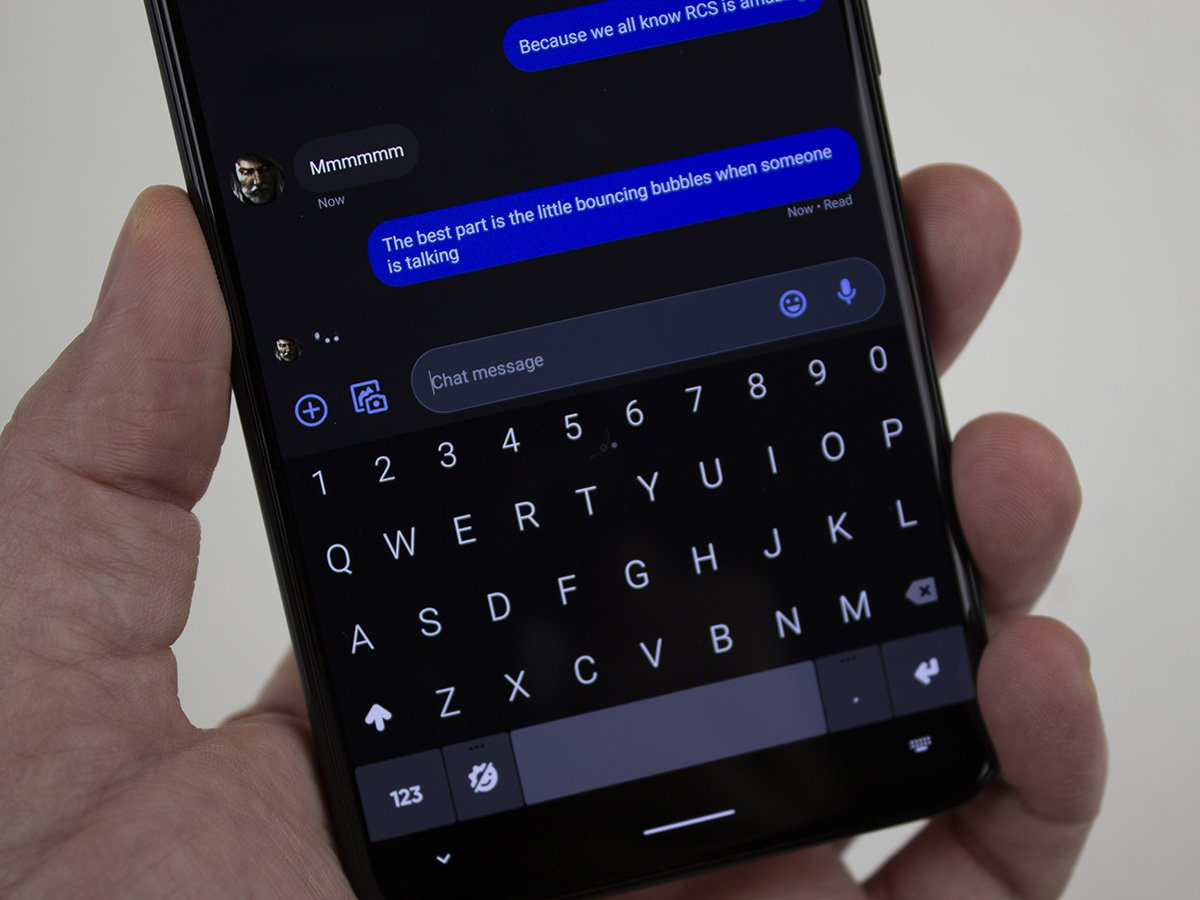The CCMI could be the RCS solution that works because carriers can profit from it

The CCMI — Cross-Carrier Messaging Initiative — is the new way that the big four U.S. carriers are going to save messaging. According to them, this is an almost insurmountable task and it will take at least another year before a new app can be built so you and I can do the same thing WhatsApp — and Android Messages on every phone — is able to do when it comes to sending someone a message that's more than just text.
Bull.
The CCMI is simply a way for the carriers to control the rollout of the RCS Universal Profile on their terms, their way, and so they can make more money. Just like any other service built atop a carrier network they get the final say and it always puts their interests first.
More: What is CCMI, the U.S. carriers' answer to universal RCS messaging?
First thing's first. AT&T, Sprint, T-Mobile, and Verizon own their respective networks and have the final say on how they are used. I get it and I'm sure you get it, too. We can dislike how things are done but until we find the means to start our own nationwide telecom and broadband company, we're stuck with it.
But that doesn't mean we have to like it or even that carriers should always make decisions that don't line up with what the customer wants or needs. That has always been the issue, and from the 3G rollout to the present day it seems like carriers have a knack for screwing us over so they can make a few more dollars.
Carriers are like any other business and the bottom line comes first. I just wish they were honest about that fact.
With the CCMI, the way they plan to make those dollars isn't clear at first. The joint press release is big on details about how the carriers can be the good guy and provide a "single seamless, interoperable RCS experience across carriers" because they value our such and such and all decisions are based on what's best for our whatever. But there are also some pretty big clues about the money side of things.
Be an expert in 5 minutes
Get the latest news from Android Central, your trusted companion in the world of Android
According to the Big Four, the CCMI will also "drive a robust business-to-consumer messaging ecosystem and accelerate the adoption of Rich Communications Services (RCS)". Verizon Consumer Group CEO Ronan Dunne lays it out further:
CCMI will create the foundation for an innovative digital platform that not only connects consumers with friends and family, but also offers a seamless experience for consumers to connect with businesses in a compelling and trusted environment.
In regular human speech, this means that carriers plan to find ways to get business pay to use RCS messaging. That's not surprising, but it's very unclear why enabling the RCS Universal Profile on a network then stepping out of the way can't offer the same thing. Include "Rich Communications" as part of a business telecom plan and call it done.
You mean the company that tracks my every move could offer "unique business opportunities" where other companies can talk to me? Nope. Nope.
The skeptic in me thinks that a business like your carrier that knows where you live, where you work and where you shop because it tracks your every move really shouldn't be involved in cooking up a scheme that lets other businesses chat with you over its network. That's because the realist in me knows that carriers already sell our location information and this is simply another way to profit from it.
More: What is RCS and why is it important?
Look, I can understand not wanting to give Google the keys to your fancy new RCS network. If it were my business, I wouldn't want to, either. But there is no need for more grandstanding and multi-year planning when we already know that it can just work using the existing methods. The CCMI is just another smokescreen that carriers hide behind while they count our money and sell our data. And I'm kind of sick of both.

Jerry is an amateur woodworker and struggling shade tree mechanic. There's nothing he can't take apart, but many things he can't reassemble. You'll find him writing and speaking his loud opinion on Android Central and occasionally on Threads.
